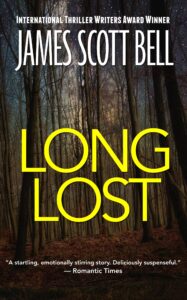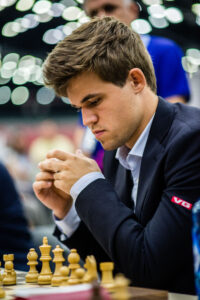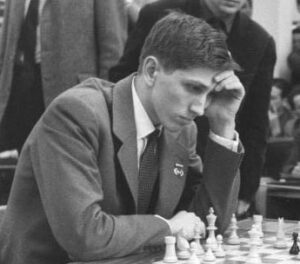by James Scott Bell
@jamesscottbell
Recently I watched a profile of the World Chess Champion, 29-year-old Norwegian Magnus Carlsen. He has a brain that can only be described as…singular. His is a Summit; most of us are operating with Kaypros. His noggin can run complex calculations in seconds at the same time we’re trying to remember to carry the 1 on a scratch pad.
For example: it’s common for chess Grandmasters to play several amateurs simultaneously, going from board to board and making moves. This Carlsen kid—get this—played ten opponents this way, only he did it with his back to the boards! That means he couldn’t look at them. Someone called out the move so-and-so made on Board #1, and Carlsen then called out what his next move was. And so on down the line.
He had to “see” ten different boards in his mind and calculate all the moves for each game. We have trouble remembering what color shirt we put on this morning.
I was really into chess my first year of college. That was the summer of Bobby Fischer, who became the first—and still only—”rock star” American chess player. He was about to take on the Soviet world champ, Boris Spassky. The Soviets dominated chess. Between 1949 and 1972, every single world champion was a product of the Soviet chess system. In the USSR, gifted kids were nurtured by the state, coached and trained by chess masters for optimum performance. The best of these would go on to world tournaments, with a team of coaches who prepared them by poring over the games of opponents and working out strategies.
Bobby Fischer had none of this. He just got into chess as a kid and set aside everything (including an education) to give himself completely to the game. A full-on prodigy, Fischer attained Grandmaster status at age 15, the youngest in history (to that point). He also played, at age 13, what most experts dubbed “The Game of the Century” (with a brilliant Queen sacrifice, Fischer beat one of the strongest American players of the time, Robert Byrne.)
Now he was poised to take on the Soviets single handed. And America jumped on board. Fischer was on the cover of Time and Life. He was profiled on 60 Minutes and interviewed on a plethora of talk shows. Fischer had one of those singular brains, too, which he used to win the World Championship. Unfortunately, that same brain became increasingly paranoid, and Fischer never again played big-time chess.
But Fischer-mania got me into chess my Freshman year. My dad taught me the game when I was a kid and I knew the rudiments. Now I started studying books and chess magazines. I took lessons and played as many games as I could. I even won my dorm chess tournament. But once I got to playing in the upper levels, I realized, as Dirty Harry once put it, my limitations.
What I knew was that I could study and study and play and play and give up all social relations for ten years…and I would never get close to having the gray matter of a Fischer, a Karpov, a Kasparov … let alone a Magnus Carlsen!
Did that mean I gave up chess? By no means! I continued to enjoy the game. When I was starting my acting career I was in a production of Hamlet and struck up a friendship with another cast member who also liked chess. We were at the same level, too, which makes the game much more enjoyable than playing a guy who can crush you in ten moves. I recall great pleasure that summer playing chess with Abraham at his place, with cool jazz in the background and a cold beer at the elbow. Games would take a leisurely two hours or more, which seems unheard of today in our manic-paced world.
To bring this around to writing, I know there are authors out there with more natural talent for language and storytelling than I. But should that stop me from playing the game? From studying the craft and enjoying what I do?
When I play chess, I don’t have to be like Carlsen, because I can’t be. But I can certainly try out some opening moves I’ve studied and see where they lead. I know that doing this will make me a better player on my own terms.
 With writing, I can also try things out, strive to be better. I may not attract the attention of the Nobel Prize committee, but I can grow my readership book by book. (Which reminds me that you can still pre-order my thriller, LONG LOST, at the special ebook deal price of 99¢!)
With writing, I can also try things out, strive to be better. I may not attract the attention of the Nobel Prize committee, but I can grow my readership book by book. (Which reminds me that you can still pre-order my thriller, LONG LOST, at the special ebook deal price of 99¢!)
So be your own genius. Compare yourself not to others but to you. Look at where you were and where you are. Make a plan to be better tomorrow. Then you can truly enjoy what you write, because getting better is its own reward.
So what person of mental prowess or natural talent do you admire?
Do you ever find that you’re comparing yourself to others? What do you do about that?


